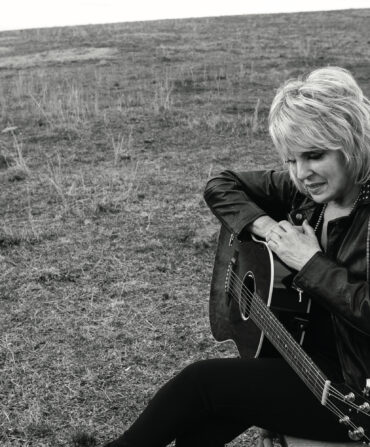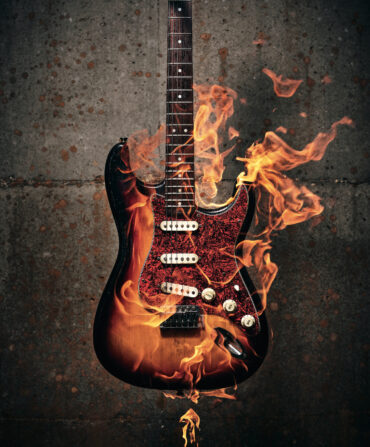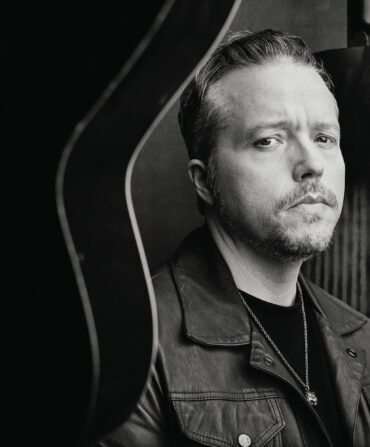Music
Nashville’s New Tune: The Next Music Row
Broadway might be more famous, but when it comes to Nashville’s new music scene, the epicenter is Eighth Avenue South
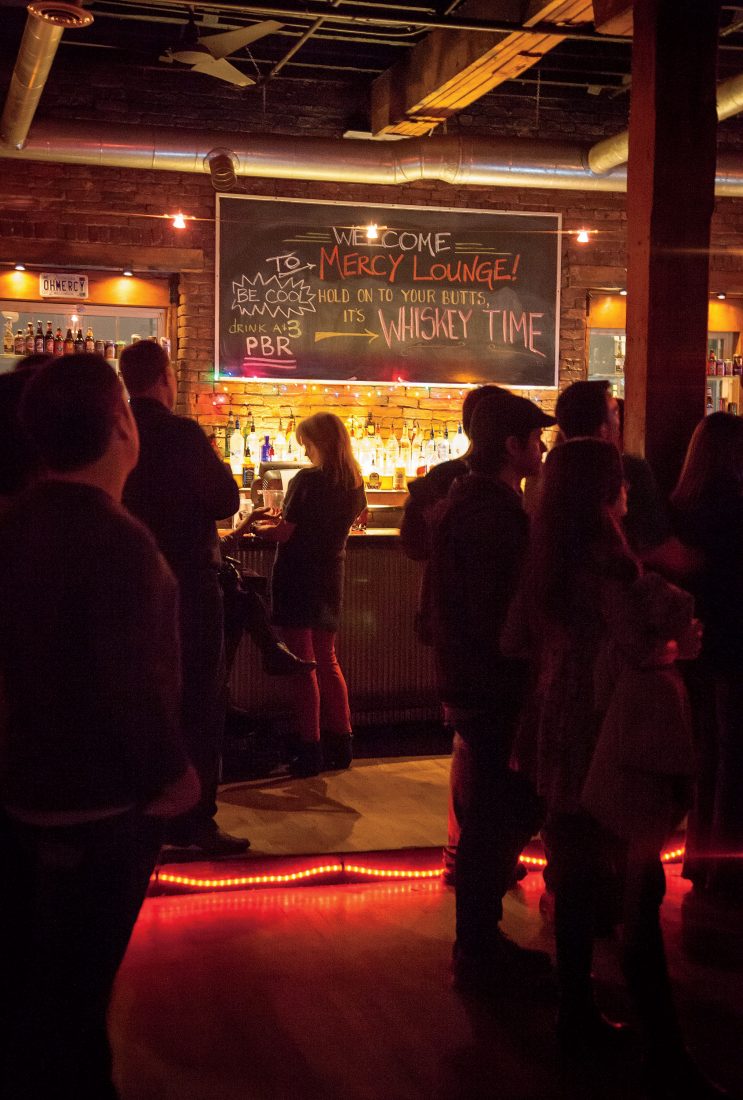
Photo: Caroline Allison
We’re at a club called the Basement, below Grimey’s record shop on Nashville’s Eighth Avenue South, a ways from the punishing neon lights and honky-tonks of Broadway. There’s a small stage in a standard pared-down brick room lit by Pabst Blue Ribbon neons and string lights. The Basement has a reputation for hosting the best local acts in the city as well as the occasional surprise appearance from a band like Metallica. It’s about as packed as anybody can remember it tonight—the fire marshal would faint.
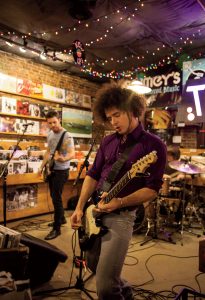
Photo: Caroline Allison
Sound Off
A band performs at Grimey’s.
Everyone is here to see Alanna Royale, a band fronted by Alanna Quinn- Broadus, a singer chasing a Nashville dream if there ever was one. She came down from Boston with just ambition and a powerful set of pipes. She’d heard the stories—talented performers grinding clubs for a decade with nothing to show but a half-empty tip jar. Like everyone else, ever, she didn’t care. You can see why: She’s a powerful singer, throwing herself around like some foul-mouthed meeting of Janis Joplin and Amy Winehouse, complete with brass. The “Nashville sound” is known for polish. This is something else.
“Everyone in this room has done us a f**king favor,” she says, sweaty and breathless between songs. “I want to thank all of you from the bottom of my f**king heart. We couldn’t do any of this without you.”
You can tell she means it. None of the faces in the crowd seem to doubt for a second that they are here, now, at the beginning of something big.
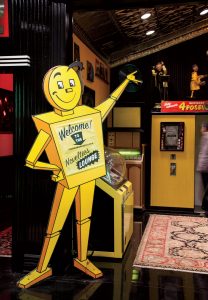
Photo: Caroline Allison
Inside Third Man Records.
This is Eighth Avenue South, the anti-Nashville, or the new Nashville, or something else, depending on what you want to call it. It’s a seething, rapidly developing indie rock hub—there are clubs, managers, music-related social media, and even a salon/music venue, called Parlor & Juke, where a roster of rock stars have had their hair cut. Jack White moved to the neighborhood a few years ago with his label Third Man Records, and Dan Auerbach from the Black Keys followed suit with a recording studio. There’s talk of a new venue or studio every day, and plenty of vacant buildings for them to occupy. There’s something happening here that makes old hands think about the days of Outlaw Country and wonder what it was like when Music Row was first getting started. It’s rough, no doubt. That’s the fun of it.
People have been lamenting the excesses of Music City ever since the modern recording industry took shape. Waylon Jennings wondered back in 1975 if Hank had done it this-a-way, a couple of decades before George Strait and Alan Jackson warbled something about a murder on Music Row in 2000. Dale Watson’s “Nashville Rash” is another good example. The complaints: Nashville is the corporate music machine, Nashville is style over substance, Nashville is for tourists, real country music is dead.
Eighth Avenue South is many things, but glitzy is not one of them. It’s the sort of place you’d call postindustrial if there wasn’t a fair amount of functioning industry. The tourism board calls it the antiques district because of a few scattered stores. Locals remember that not long ago it was known for massage parlors. You could say that the current music scene here started ten years ago, when Chark Kinsolving carved the Mercy Lounge out of an old cannery building toward the top of the street. He had been living in the same set of buildings at the time—there was no real outer door, and homeless people would sleep just inside. He remembers going up to the roof and drinking with his friends while looking out at the skyline. He thought it would be a good place for a venue.
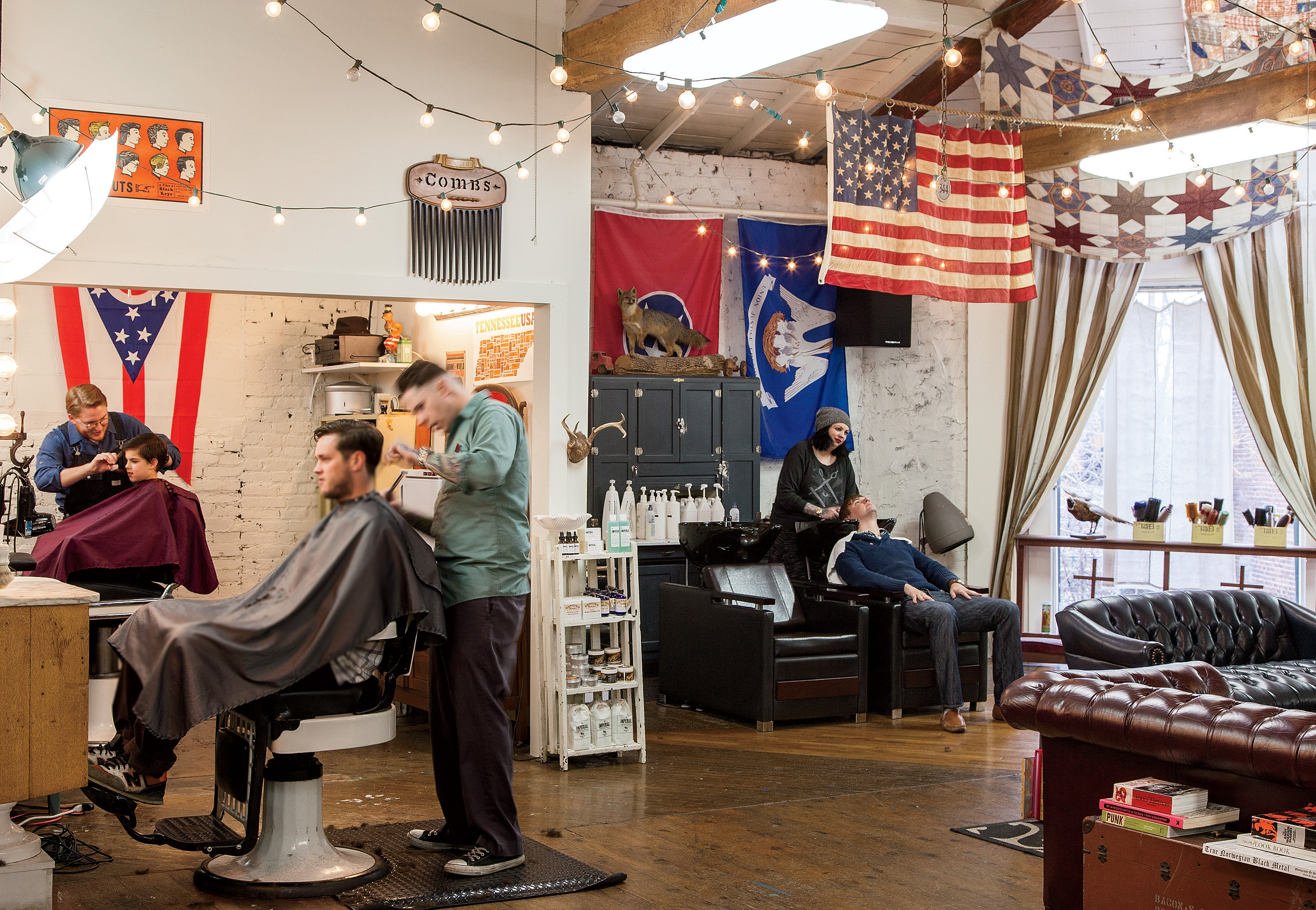
Photo: Caroline Allison
A quieter time at Parlor & Juke.
Today, Cannery Row holds three separate venues and a host of other businesses. The Nashville music scene is making serious progress when it comes to shaking the “Nashville curse”—pop country is one thing, but in some circles such names as the Black Keys, Kings of Leon, and Justin Townes Earle speak nearly as loudly as Tim McGraw and Taylor Swift.
“There’s a whole lot going on now in Nashville that’s different from how it was fifteen to twenty years ago, or even ten years ago,” says singer-songwriter Jason Isbell, a former member of Drive-By Truckers and a recent Nashville transplant. “A lot of that has to do with the atmosphere in town. I don’t know what causes a city to make this kind of progress, but I think the right people moved here at the right time and then a lot of their friends followed.”
Around the corner from Cannery Row is Third Man Records, Jack White’s mad musical empire caught somewhere between a traditional label and a temple to vinyl. It’s gone a long way toward legitimizing the music business in the area, even if it’s hard to say what exactly they do there. They’re vinyl evangelists, record producers, collectors of African taxidermy and music curios. They hold shows at a small venue, distribute singles from local and other acts, and publish White’s music on vinyl. They released one of his singles by printing flexible records and sticking them to balloons.
Ben Swank helped White found Third Man in Nashville in 2009. He best describes his title as “consigliere”—that’s about as specific as anything gets around there. For him, that kind of amorphous, ramshackle approach to the music industry is the only way the business can evolve. The monolithic, powerful label isn’t what defines music anymore, and Eighth Avenue South is a place where that patchwork future of twenty-first-century music is taking shape.
“There’s never going to be another Music Row,” Swank says. “But you can look at this area as a place where the new ideas are coming out of. What you see with what Jack’s established here and what you see with studios coming up is people taking control of their own careers.”
You can tell that a neighborhood has made it when even recent transplants worry about a gentrified future. Swank had been saying for a while that the old furniture warehouse near Third Man would be great for lofts, and now that someone is finally converting it, he isn’t sure how he feels about it. Property values are skyrocketing, and Eighth Avenue South is making the transition from a jerry-rigged series of warehouses into a real musical force. Where Music Row is wholly committed to a vision of the music industry that has done nothing but decline since the late nineties, Eighth Avenue doesn’t seem committed to anything but music itself.
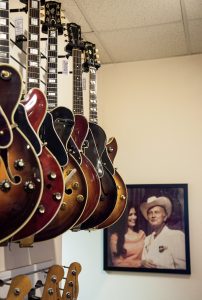
Photo: Caroline Allison
Tools of the trade at Gruhn Guitars.
Gruhn Guitars has been a Nashville landmark for decades on Broadway. As George Gruhn’s popularity rose and his neighborhood developed into what he calls a “hillbilly Bourbon Street,” the idea of selling $5,000 guitars to confused tourists became more and more ridiculous. He needed to get out somewhere where he could do his work, where people actually interested in his guitars could come shop, and where he could get away from the oppressive rockabilly covers that blare out in the street every day and night.
His new address will be 2120 Eighth Avenue South.


